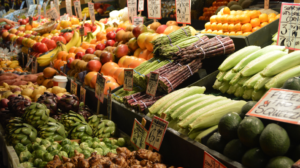The Body Shop Is Buying 250 Tons Of Recycled Plastic To Use In Its Shampoo Bottles
The Body Shop has partnered with Plastics for Change to recycle 250 Tons (226.8 MT) of plastic into shampoo bottles through The Body Shop’s Community Trade recycled plastic program.
The Body Shop cares about protecting the environment, people, and critters as much as it does about creating quality products that pamper skin and hair. The Body Shop’s Community Trade recycled plastic program aims to help fix the global plastics problem, which affects people and the planet in ways you have never thought about. And no, that’s not a Mean Girls reference, either. This is serious.
The beloved mall brand has partnered with Plastics for Change, which enables global manufacturers to source high-quality recycled plastic from responsible supply chains. Together, they are calling attention to the little-seen human side of the plastic pollution crisis and buying 250 tons of recycled plastic to use in shampoo bottles. The Body Shop, which also works to eradicate animal testing, will further use its sphere of influence to promote social change and empower people.
According to the press materials received by Bustle, our planet is literally drowningin plastic. The numbers might alarm you — and they should. More than eight million tons of plastic ends up in the ocean every year, with 90% of that plastic coming from 10 rivers in Asia. Additionally, 91% of plastic is not recycled on the global level. If we continue to pollute at such a rapid rate, the amount of plastic in the ocean will outnumber that of fish by 2050.
Additionally, over three billion people live without any formal waste management system in place. Therefore, an informal waste picking work force has developed in order to deal with all that the trash.
There are approximately 15 million people in low-income countries currently working as waste pickers. Many are women living below the poverty line and working sub-standard conditions. The Body Shop states that India alone has 1.5 million waste pickers who collect and sort over 6,000 tons of plastic daily. These waste pickers are often viewed as outcasts. Many are known as “Dalits” or “untouchables,” despite the fact that their work is critically important in battling the vicious cycle of waste on a global scale.



